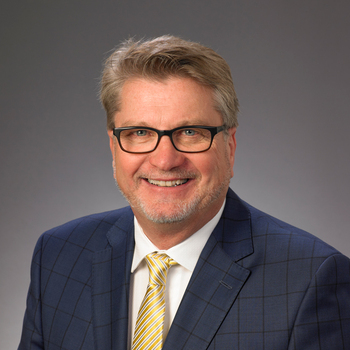Carbon capture and storage is a pioneering story in Saskatchewan - yet despite its international success, there has been some confusion about how CCS is valued in the province and the world - I'd like to shed some light on it.
The local news media had recent stories of SaskPower’s pending decision (anticipated in early 2018) to its Board of Directors and the Government of Saskatchewan, specifically related to whether CCS would be recommended on their aging BD4 and BD5 power plants.
It's about BD4 and BD5 and their capabilities and the cost to upgrade those plants - with CCS added to extend their operating lives. SaskPower has stated this decision is pending.
To be clear, a decision on whether to add CCS on BD4 and BD5 are not an indication of the success of the CCS facility on BD3. – Where in fact, SaskPower CEO, Mike Marsh said in a statement (Nov. 3, 2017), "The project has been heralded around the world as a major breakthrough in the effort to reduce greenhouse gas emissions.”
Record-Breaking Month
For reference, the BD3 CCS facility, recently experienced a record-breaking month, in October 2017, as noted on SaskPower’s website. It was reported to be running at 85% of maximum capacity with 85,375 tonnes of CO2 captured. If this pace were to continue for a year, more than 1,000,000 tonnes of CO2 would be captured. The plant was designed with an overall 85% capacity factor for all outages and de-rates.
Sask Expertise for Export
The ingenuity and engineering advancements in the commercial deployment of CCS in this province continue to draw global attention. This means that the eyes are on Saskatchewan to be leaders in innovation that is solution-focused. We offer investors and industry the technological and policy know-how - that significantly reduces costs and risks associated with CCS projects.
Which is why the International CCS Knowledge Centre was created - established in 2016 as an initiative of BHP and SaskPower with the goal of accelerating the global development of CCS technology by sharing access to the data, information and lessons learned from SaskPower’s Boundary Dam 3 facility and by incorporating the knowledge and experience from CCS projects elsewhere in the world. Read more.
In early October 2017, we hosted representatives from 14 countries to discuss lessons learned and what's next to globally advance CCUS. Read more and news release.
In mid-November, we were featured on the world stage in Bonn Germany at the United Nations Congress of the Parties. Read more.
On December 1st the province signed an agreement between Saskatchewan and three US states - creating a mechanism to collaborate and share knowledge on CCS.
On December 8th we signed two Memorandum of Understandings (MOUs) in Beijing, China - the first with Sinopec Nanjing Chemical Industry Research Institute; and the second one with Huaneng Clean Energy Research Institute. These MOUs along with two previous in the China, facilitate the initial steps for both countries to work collaboratively across various sectors, such as industry, research institutions and government with the shared vision to develop CCUS in China – in order to reduce global greenhouse gas emissions.
The advancement of CCS is very much active in the province and around the world because of the smart work of Saskatchewan’s facility and their courage and willingness to be first.

